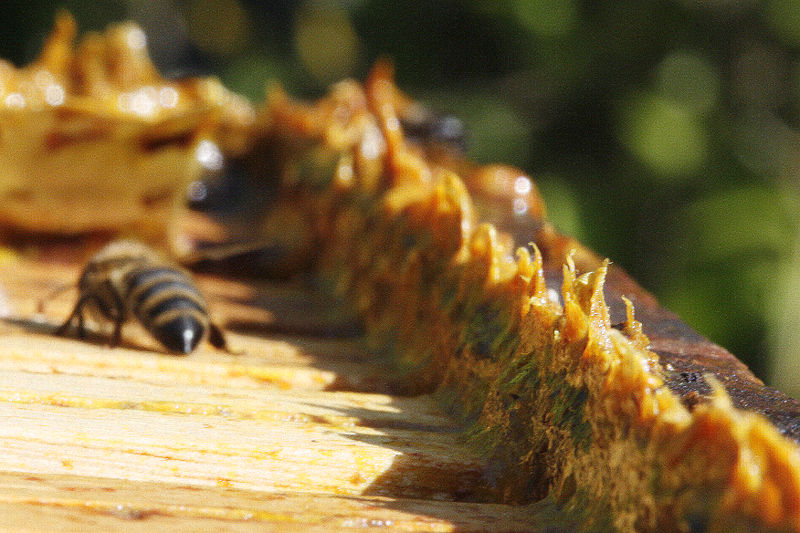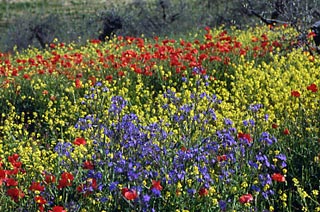
Wildflower Honey
This is the traditional honey. Its flavour and its colour can vary depending on the origins of flowers and plants. A nutritious food endowed with important dietary properties, it is suitable for breakfast and for preparing any sort of dish. It is produced in the countryside and in the woods near Carpinone (IS) from the beginning of May to the end of July.
Acacia Honey
This type of honey has a delicate flavour and can be used to sweeten tea, coffee and mascarpone (a kind of soft cheese used for preparing cakes and creams). As it is suitable for children, acacia honey can be also used, in a proper quantity, to sweeten their meals. Moreover, being rich in fructose, it is the most recommendable for mild diabetics. In general, it has got restorative and mild laxative properties and it is also an effective detoxicant for the liver. It is produced in late spring in the unpolluted countryside near Cassino (FR).
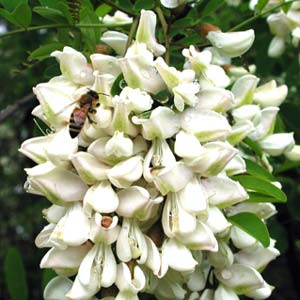
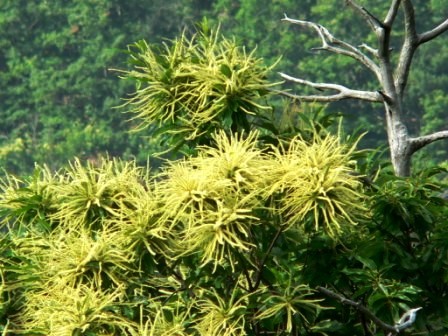
Chestnut Honey
A strong flavoured honey, slightly bitter, produced in the boundless woods near Conca della Campania and Roccamonfina (CE) at the beginning of June and July. It can be used for preparing pork cutlets and for sweetening coffee. We also recommend it with cheese. It helps improve the blood circulation and is suitable for anaemic, asthenic and feeble people.
Eucalyptus Honey
This honey has got the aromatic flavour of eucalyptus leaves. It is suitable for preparing bittersweet sauces. Thanks to its antiseptic effects on the respiratory and the urinary system and on the intestine it is recommendable as treatment for respiratory affections, in particular bronchitis and cough, and for enteritis and cysts. Moreover it is an effective decongestive, especially for smokers. It is produced in the plains near Latina in early summer.
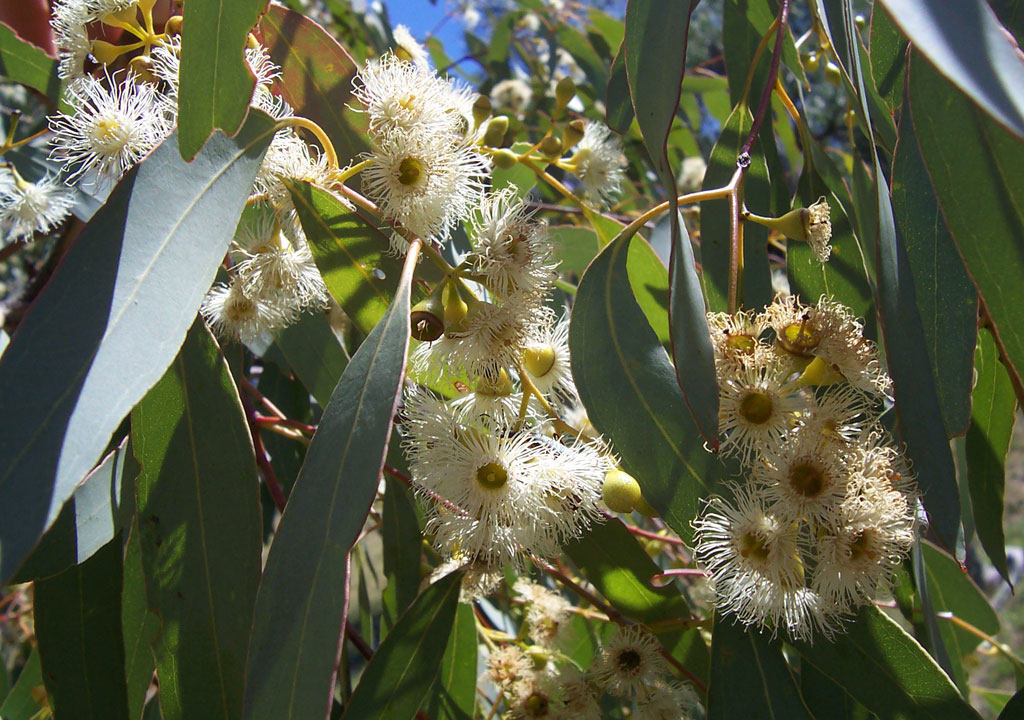
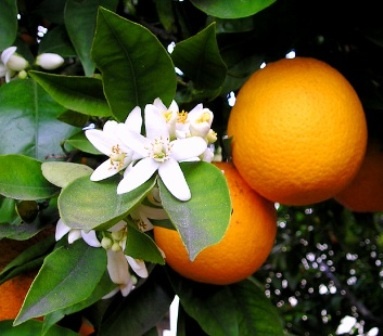
Orange blossom Honey
A very sweet orange-flavoured honey suitable for cakes and refreshing drinks. Its sedative properties have a positive effect on anxiety states, migraine, sleeplessness and palpitations. This type of honey is produced in the woods near Fondi (LT) in late spring.
Bee Pollen
Pollen is a living part of plants. It contains almost all the nourishment an organism needs to develop and grow up. Its amino acid content is from five to seven times higher than the one of meat, eggs and cheese.
- it is an excellent tonic and, having a growing appetite its counterpart in a increased metabolism, it is not fattening;
- it has a multi-effect action on intestinal functions;
- it is an effective remedy for the hypertrophy of the prostate;
- it is has got anti-anaemic properties;
- it makes the capillaries stronger;
- it has got egregious hepatoprotective properties; moreover it can contribute to relieve existing arteriosclerotic processes;
- it has got a positive effect on senescence by preventing disorders related to old age and giving back energy;
- it has an effect on sexuality and on the general psychological state thanks to the psychophysical sensation of wellbeing it induces.
We recommend to take 20/30 gr. of bee pollen a day, in the morning before breakfast on an empty stomach,. It can be taken in its natural state or it can be milled. It can also be mixed into honey or hot drinks.
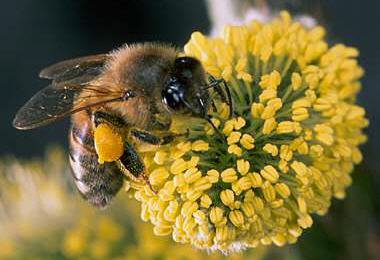
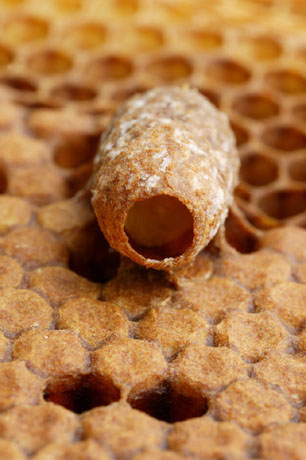
Royal Jelly
Royal jelly acts as stimulator of the whole body producing a general sensation of wellbeing, a felling of euphoria and self-confidence. It also helps the body fight physical and mental weariness and has benefits on some diseases:
- on both lack of appetite and overeating, being effective even in the treatment of obesity;
- on duodenal ulcer;
- on skin diseases. It helps skin look softer and firmer and fights blackheads, acne and hair fall;
- on neuropsychological activity;
- on the sexual sphere by favouring its activities;
- on anaemia and asthenia, especially the senile one;
- on blood pressure, coronarophaties and myocardiopathies.
- Its effectiveness in preventing cancer is still in course of study.
It is particularly recommended to newborns, children and elderly, to convalescents, sportspeople, students, pregnant women and to anyone under stress. Palladino beekeeping recommends to ingest a small scoop every morning before breakfast.
Propolis
Propolis is the only bee product that is not for food, being rather used as a natural wound healing. Propolis is made up of a resin honey bees collect from trees and work in their hive. They use it to fill unwanted gaps in the hive itself.
The beekeeper makes it liquid by working it with alcohol.
Propolis is an effective remedy for cold, sinusitis, pharyngitis, sore throat, laryngitis and also for toot-ache. Moreover it helps heal acne, pimples, sores and wounds.
